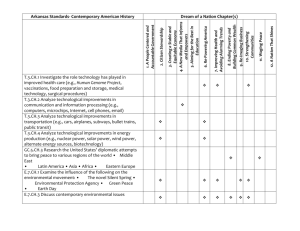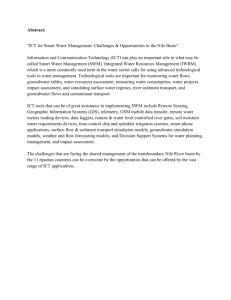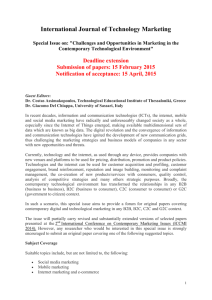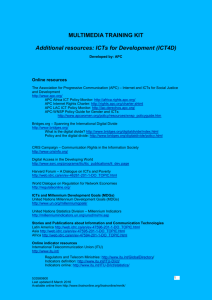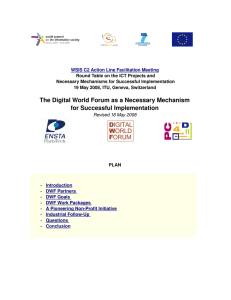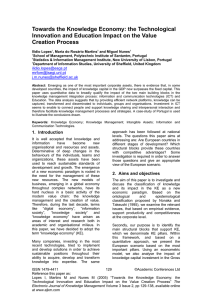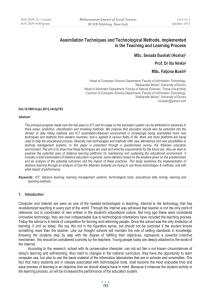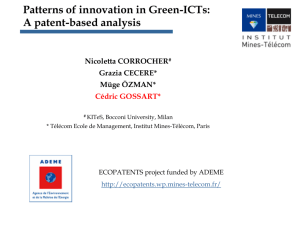Civil Society Intervention at the Regional Conference
advertisement
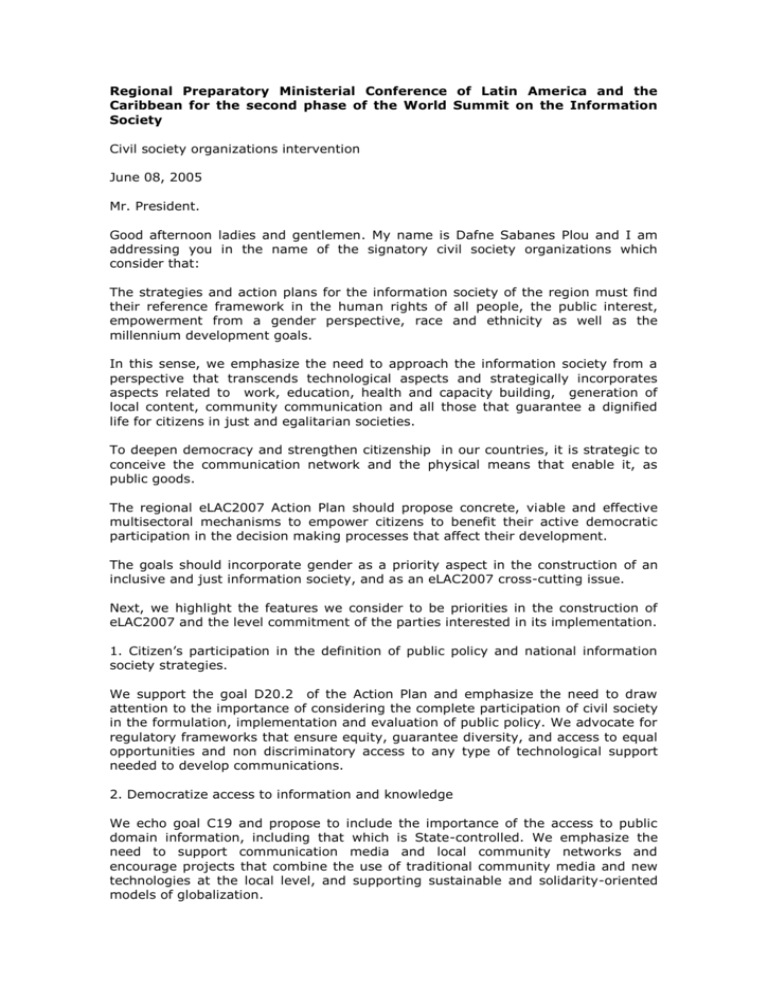
Regional Preparatory Ministerial Conference of Latin America and the Caribbean for the second phase of the World Summit on the Information Society Civil society organizations intervention June 08, 2005 Mr. President. Good afternoon ladies and gentlemen. My name is Dafne Sabanes Plou and I am addressing you in the name of the signatory civil society organizations which consider that: The strategies and action plans for the information society of the region must find their reference framework in the human rights of all people, the public interest, empowerment from a gender perspective, race and ethnicity as well as the millennium development goals. In this sense, we emphasize the need to approach the information society from a perspective that transcends technological aspects and strategically incorporates aspects related to work, education, health and capacity building, generation of local content, community communication and all those that guarantee a dignified life for citizens in just and egalitarian societies. To deepen democracy and strengthen citizenship in our countries, it is strategic to conceive the communication network and the physical means that enable it, as public goods. The regional eLAC2007 Action Plan should propose concrete, viable and effective multisectoral mechanisms to empower citizens to benefit their active democratic participation in the decision making processes that affect their development. The goals should incorporate gender as a priority aspect in the construction of an inclusive and just information society, and as an eLAC2007 cross-cutting issue. Next, we highlight the features we consider to be priorities in the construction of eLAC2007 and the level commitment of the parties interested in its implementation. 1. Citizen’s participation in the definition of public policy and national information society strategies. We support the goal D20.2 of the Action Plan and emphasize the need to draw attention to the importance of considering the complete participation of civil society in the formulation, implementation and evaluation of public policy. We advocate for regulatory frameworks that ensure equity, guarantee diversity, and access to equal opportunities and non discriminatory access to any type of technological support needed to develop communications. 2. Democratize access to information and knowledge We echo goal C19 and propose to include the importance of the access to public domain information, including that which is State-controlled. We emphasize the need to support communication media and local community networks and encourage projects that combine the use of traditional community media and new technologies at the local level, and supporting sustainable and solidarity-oriented models of globalization. 3. Generation and distribution of local information and content. We advocate for the strengthening of national and regional strategies to disseminate and produce local content that promotes knowledge management and reflects cultural diversity. In relation to goal B11, we request that the group works a regional position with an eye on the Convention on Cultural Diversity that is being discussed within the UNESCO’s scope. 4. Adoption and production of appropriate technological platforms We agree with goal B7.1. In relation to goal B7.2, we consider it essential for the group to analyze, as a part of its mandate, the relationship between the adoption of free software, overcoming the technological dependence and its impact on the development of countries in the region. 5. Financing ICT for development Financing for ICTs must be based on the consideration of information and communication as global public goods. We request that goal D21 generates income for the adoption of public financing mechanisms for ICT for development in areas not served by the market. To conclude, we would like to mention that our civil society organizations are committed to the promotion and defense of the rights to communicate – that we consider, include but do not limit the right to information and freedom of expression- as a basis to exercise of other fundamental human rights and essential conditions for egalitarian and democratic information societies. We call on the governments in the region to ensure the necessary conditions for the full enforcement of those rights. Thank you, Mr. President. Signatory organizations: AMARC ALER Funredes Links Cris México Geledés – Instituto da Mulher Negra Articulaçao de Ongs de Mulheres Negras Brasileiras Articulaçao CRIS Brasil Rede DAWN WSIS Gender Caucus Association for Progressive Communications Colnodo LaNeta Nodo Tau Cepes Wamani Item APC Women's Networking Support Programme LAC ICT Policy Monitor (Monitor de Políticas de TIC en LAC) RITS – Rede de Informaçoes Para o Terceiro Setor TRADUCCIÓN: Association for Progressive Communications, APC.
